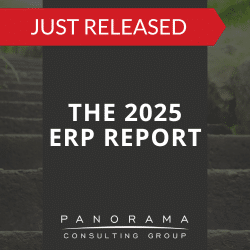- ERP consultant fraud, such as conflicts of interest and negligence, can lead to costly system failures and operational disruptions.
- Suing ERP consultants for fraud may be necessary when deception, hidden vendor incentives, or negligent guidance result in financial losses.
- ERP consultant kickback allegations can reveal hidden vendor relationships that compromise the integrity of the selection process.
- Litigation against ERP consultants can be costly and time-consuming, but alternatives like mediation may resolve disputes.
Selecting the right ERP system is a pivotal decision for any organization, often requiring the expertise of an ERP business consultant to navigate the complex landscape and ensure an unbiased evaluation.
However, what happens when that trust is broken? What if the consultant guiding your ERP selection prioritizes vendor relationships over your business’s needs, engages in unethical practices, or provides negligent advice?
The consequences of such actions can be catastrophic—so much so that you may need to sue your ERP selection consultant.
Today, we’ll explore the factors to consider, the risks involved, and how to protect your organization from ever reaching this point.
The Role of Trust in ERP Selection
ERP consultants, often positioned as ERP leaders, are trusted advisors in one of the most consequential decisions your business will make. Their expertise is meant to ensure that your ERP system aligns with your unique workflows, integrates seamlessly with your existing processes, and supports future growth.
Central to this role is independence. An ERP business consultant must provide unbiased guidance, evaluating ERP vendors objectively and recommending solutions based on your specific requirements—not on external incentives.
Unfortunately, not all consultants uphold this standard. Many accept referral fees, kickbacks, or other financial incentives from vendors, compromising the integrity of their advice.
Beyond direct financial incentives, some ERP consulting firms have an additional motivation to push specific software. Many consulting organizations staff application-specific resources—consultants trained in particular ERP platforms—who must be kept fully utilized to maximize profitability.
This creates a conflict of interest, as firms may prioritize software recommendations based on internal resource utilization rather than the client’s best interests. When consultants recommend an ERP system primarily to ensure ongoing billable work for their team, businesses risk being locked into a solution that is misaligned with their operational needs.
The risks of such misconduct cannot be overstated. A poorly matched ERP system can disrupt your supply chain system, introduce inefficiencies, and hinder operations across departments.
In many of our client engagements, we’ve seen how ERP consultant conflict of interest leads to biased recommendations that ignore critical business requirements. This is particularly damaging in industries like manufacturing, where ERP systems must support highly customized supply chain operations. These failures can result in financial losses, reputational damage, and significant operational setbacks.
Contemplating litigation?
We have multiple software expert witnesses available for provision of reports, depositions, and testimonies.
Recognizing Fraud in ERP Consulting
To determine whether legal action might be necessary, it’s crucial to identify potential fraud by your ERP consultant. Common red flags include:
- Conflicts of Interest: Consultants who accept vendor referral fees or kickbacks may prioritize financial gain over your organization’s needs, undermining the integrity of their recommendations.
- Negligence in Selection: An ERP consultant must understand your business’s processes, data structures, and long-term goals. A lack of due diligence or generic recommendations often results in costly misalignment.
- Opaque Processes: Transparency is key in ERP consulting. A lack of clarity on how the team evaluates vendors raises questions about whether decisions are being made in your best interest.
When Legal Action May Be Justified
While legal action should not be your first response, there are situations where suing an ERP business consultant is justified. Common grounds for litigation include:
- Breach of Contract: If your consultant fails to deliver the services outlined in your agreement—such as performing vendor-neutral evaluations or conducting a thorough needs assessment—you may have legal grounds to recover damages.
- Fraud or Misrepresentation: Concealing conflicts of interest, such as vendor referral relationships or knowingly providing bad advice, constitutes a serious breach of trust and professionalism.
- Gross Negligence: Severe failures, such as recommending an ERP system incapable of supporting core operations, can lead to significant harm and may warrant legal action.
For instance, an organization in the manufacturing sector could face widespread disruptions if their ERP system fails to adequately manage their supply chain, leading to delayed shipments, overstocked warehouses, and reduced profitability.
Expert Insight
Pursuing litigation requires careful consideration. Lawsuits can be resource-intensive, time-consuming, and may require detailed records of the selection process or testimony from a computer software expert witness with decades of experience such as Steve Ditty to establish the consultant’s liability.
Exploring Alternatives to Litigation
Before pursuing legal action, it’s worth exploring less adversarial options to resolve disputes. Mediation or negotiation with your consultant can often lead to a resolution without the need for litigation.
Additionally, if your consultant carries professional liability insurance, filing a claim through their insurer may provide compensation for damages without prolonged legal proceedings.
It’s also essential to assess whether internal factors contributed to the ERP failure. Misaligned expectations, inadequate executive sponsorship, or lack of preparation can amplify challenges, even when the consultant’s advice is sound. Addressing these internal issues can help you recover from setbacks and prevent future problems.
Preventing ERP Selection Failures
The best way to avoid the question of whether to sue your consultant is to prevent the issue from arising in the first place. Here’s how:
- Hire Independent Consultants: Work with an ERP consulting firm that explicitly states they do not accept vendor kickbacks or referral fees. Independence ensures their recommendations are based solely on your business’s needs.
- Conduct Rigorous Vetting: Evaluate potential consultants thoroughly. Review their experience, request references, and confirm their expertise in industries similar to yours.
- Define Clear Expectations: Establish a detailed contract outlining the scope of work, deliverables, and performance metrics. This clarity minimizes misunderstandings and provides a basis for accountability.
- Stay Involved in the Process: Actively monitor the ERP selection process, asking questions and requesting documentation at every stage. Transparency ensures that decisions are well-informed and unbiased.
- Engage an Expert for Reviews: In cases of uncertainty, consider consulting an ERP project recovery expert to evaluate your consultant’s actions and ensure they meet professional standards.
By implementing these measures, you can significantly reduce the risk of ERP selection failures and protect your organization from costly mistakes.
Learn More About ERP Selection Consultant Fraud
In cases of consultant negligence or fraud, businesses often face major setbacks.
However, the decision to sue your ERP selection consultant is a serious one, requiring careful evaluation of the circumstances and potential outcomes. While legal action may sometimes be necessary to recover damages, it should generally be viewed as a last resort.
Ultimately, the goal of any ERP project is to drive long-term success for your business. By approaching ERP selection with care and rigor, you can minimize risk and ensure your organization reaps the full benefits of its investment. Contact us below for guidance and a free ERP consultation.














